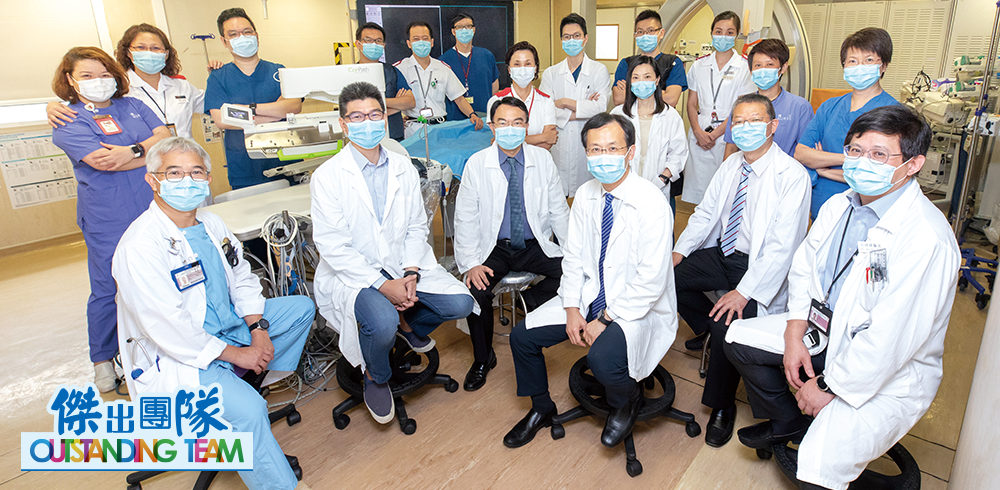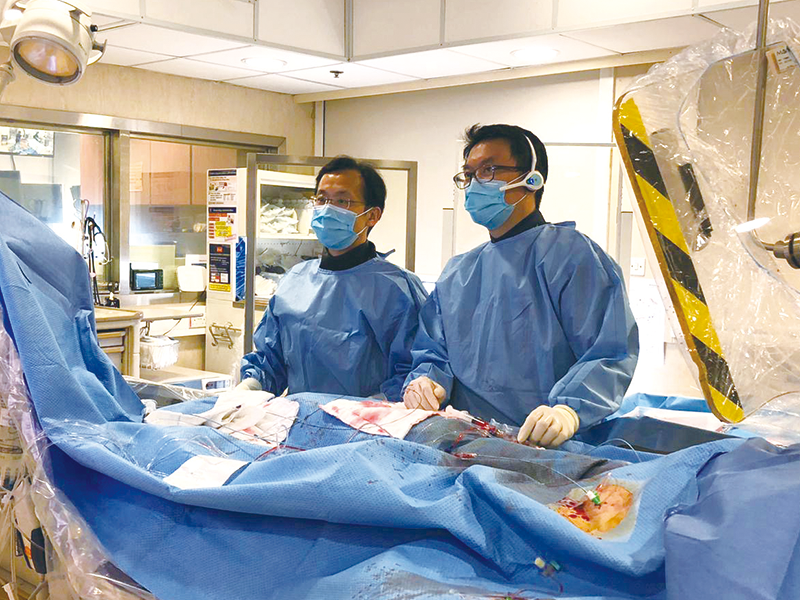Lives indebted to round-the-clock PPCI across hospitals
KCC 24-hour Primary-PCI TeamQueen Elizabeth Hospital and Kwong Wah Hospital
Every procedure is critical in a life-saving mission. Despite the complex preparation process and long on-call hours, all the hard work pays off when precious lives are saved.
Knowing the needs of patients with acute ST-elevation myocardial infarction, Queen Elizabeth Hospital (QEH) and Kwong Wah Hospital (KWH) have jointly introduced a cluster-based 24-hour Primary Percutaneous Coronary Intervention (PPCI) Programme in late 2018. Upon acknowledging suspected cases of myocardial infarction during non-office hours, doctors of Accident and Emergency (A&E) Department at QEH and KWH will immediately inform doctors or nurses of Cardiology Department for a preliminary assessment. If cardiologists find the cases appropriate to conduct the surgery, patients at QEH will be sent to the cardiac catheterisation laboratory (cath lab) for PPCI. On the other hand, patients admitted to KWH will be promptly transferred to QEH for the procedure. To put the service in the pipeline, it requires collaborative efforts of medical and nursing staff, ambulancemen, hospital security guards as well as supporting staff. Operation details such as ambulance routing and reservation of escalator for direct transportation of patients to the cath lab should also be well planned before kick-starting the project.
As the leaders and coordinators of this programme, Head of Cardiology Dr Chan Kam-tim and Consultant Cardiologist & Cath Lab Director Dr Michael Lee of the Division of Cardiology, Department of Medicine in QEH explain that the biggest challenge for inter-hospital services is to ensure patient safety and rapid transportation to QEH amid all the possible risks. Seamless planning and close communication among the medical staff of cardiology and A&E in both hospitals are therefore instrumental.
“Since the introduction of the service, all cases have been transported smoothly and the ‘door to balloon time’ is up to international standards, which together are excellent proof of the credible safety and effectiveness of this project,” they say. The timely treatment has also significantly reduced the mortality rate while shortening the recovery time, as about 60% of patients were discharged from the hospitals within four days.
Groundbreakers
Every Second Counts
Enlightening the Next Generation
Mighty Support
Voices of Experts


